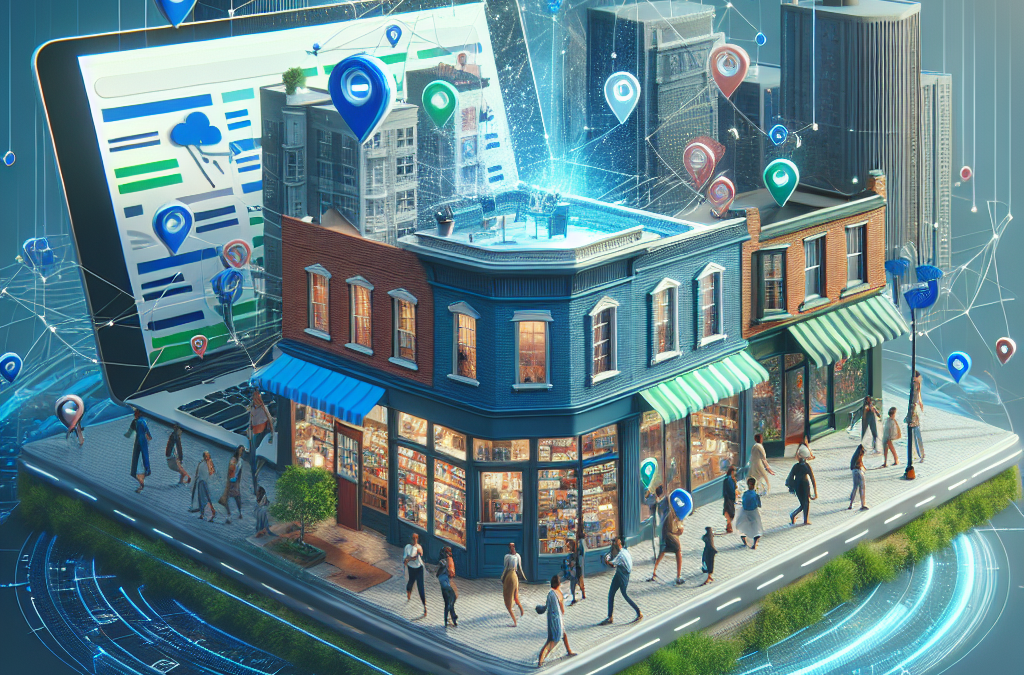Understanding the Basics of Local SEO
What is Local SEO?
Local SEO is all about optimizing your online presence to attract more business from relevant local searches. In my journey with various businesses, I’ve found that local SEO is a game-changer, especially for small to medium-sized businesses that rely on local clientele. Unlike traditional SEO, which aims at a broader audience, local SEO hones in on the specific geographical area where your business operates.
This means that when your potential customers type in “best coffee shop near me,” you want your café to be the first name that pops up. It’s about being discoverable to people actively searching for your products or services in your locality. Over time, I’ve learned that having a robust local SEO strategy can really put you on the map—literally!
Moreover, it’s about being listed correctly on platforms like Google My Business. When I started focusing on local SEO, it seemed overwhelming at first, but simplifying the basics made it a whole lot easier. It’s essentially the foundation of your local online strategy.
Optimizing Your Google My Business Profile
Setting Up Your Profile
Getting your Google My Business profile set up is the first step. Trust me, it’s like setting up your online storefront! You want to ensure all your information is accurate—like your address, phone number, and business hours. When I first started, I made sure to double-check everything because even a small mistake can lead to customers getting frustrated, thinking you’re closed when you’re not.
Also, uploading high-quality photos of your products or location goes a long way. It’s not just about information; visual appeal matters too. I always recommend adding images that truly represent what you offer. After I added vibrant images of my shop and products, I noticed an increase in foot traffic almost immediately!
Lastly, don’t forget to select the right categories for your business. This helps Google show your business when users search for specific services. Being precise helps—so if you run a bakery, don’t just categorize it as “shop.” Get specific!
Collecting and Managing Customer Reviews
The Importance of Reviews
Oh man, reviews can make or break your business. Back when I started, I didn’t realize how pivotal reviews were. They act as social proof, and potential customers are often swayed by what others have to say. I suggest encouraging your happy customers to leave positive feedback. After all, who doesn’t love sharing a great experience?
On the flip side, you can’t avoid negative reviews. What I’ve learned is that responding to them is crucial. It shows prospective customers that you care about feedback and are willing to rectify issues. I’ve learned to take complaints as constructive criticism, and you’d be surprised how a simple response can change someone’s negative experience to a positive one.
Lastly, regularly monitoring your reviews allows you to keep a pulse on your business. I keep a close eye on mine to spot trends—maybe there’s something your customers love that you can amplify further!
Local Keywords and Content Strategy
Researching Keywords
When it comes to local SEO, keywords are your best friends. But not just any keywords. We’re talking local keywords. I always start by brainstorming terms that relate to my business and where I’m located. Using tools like Google Keyword Planner really helps in narrowing down popular search terms in my area.
Once you’ve identified your keywords, sprinkle them naturally throughout your website and blog content. I like to keep it organic so it sounds like a normal conversation. Not only does this improve your chances of ranking higher, but you also connect better with your audience when the language feels relatable.
In my experience, locality-focused content—like blog posts about local events or partnerships—also enhances my site’s relevance. It’s a win-win: you engage your audience while satisfying search engine algorithms!
Leveraging Local Listings and Citations
Why Listings Matter
Creating accurate local listings is another little-known secret about local SEO. Think of them as digital business cards that help verify your presence to search engines. When I first started, I made sure to register on directories like Yelp and TripAdvisor, and I can’t tell you how much of a difference it made for visibility.
Make sure to keep your information consistent across all platforms. Even slight variations can confuse search engines, hindering your ranking. I always double-check my details to avoid this. It’s crucial when you want to be seen as a trusted business.
Don’t forget to monitor your citations—this helps with your local authority. I often cross-reference business info using tools like Moz, so I know I’m consistent everywhere.
Conclusion
So there you have it! Local SEO isn’t just a buzzword; it can truly transform your business. I’ve lived through the ups and downs of it all and can confidently say that by understanding, optimizing, engaging with reviews, focusing on local keywords, and ensuring your listings are on point, you’re setting yourself up for success. Take it one step at a time, and soon enough, you might just dominate your local market!
FAQ
1. What is Local SEO?
Local SEO is a strategy that helps businesses optimize their online presence to attract more local clients. It involves strategies focusing on local searches, which can help you show up in results when potential customers look for services in your area.
2. How do I optimize my Google My Business profile?
To optimize your Google My Business profile, ensure your information is accurate and consistent. Add high-quality photos, select appropriate categories, and keep your hours updated. Engaging actively with your customers there can also boost your visibility.
3. Why are customer reviews important?
Customer reviews serve as social proof, influencing potential customers’ decisions. They help build trust and credibility. Moreover, responding to reviews can improve customer relationships and show that you value their feedback.
4. How do I find local keywords for my business?
Start by brainstorming terms that are relevant to your business and area. Use tools like Google Keyword Planner to discover popular local search terms. Incorporate these keywords naturally into your website content for better visibility.
5. What are local listings and why are they important?
Local listings are online business profiles found on directories like Yelp, Google Maps, and others. They are important because they enhance your online visibility, help verify your business’s existence, and improve local search rankings when kept consistent.


